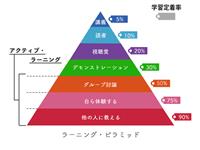Lecture 4
What Caused China’s Famine?
What is Famine?
? A famine occurs when sizable parts of a
population do not have enough to eat
? Prolonged periods of food deprivation leads
to increased morbidity and eventually death
? Often … in large numbers!
Great Famines in Historical Perspective
2WarVietnam
1965-75
1FamineBangladesh1974
0.6FamineSudan1982
40WarWWII1940
4FamineHenan1937
3DroughtMongolia 1928
Deaths
(millions)
CausePlaceYears
The causes of a famine
? Production declines
? Food Availability
? Food Entitlement
? Food Demand
? [Consumption Efficiency]
“But most famines are avoidable”
A. K. Sen (Nobel Laureate), 1981
? Malthus is wrong … population growth and
production failures -- which are a fact of life
in the world for the past 200 years -- have
not been behind famines …
? World food production has outpaced
population growth
? Populations expand slowly, while a famine
is an acute event
The causes of a famine
? Production declines
? Food Availability
? Food Entitlement
? Food Demand NO!
? [Consumption Efficiency]
“And, famines happen even when food production is not reduced too
much and are avoided when there are severe production shortfalls …”
0
10
20
30
40
50
60
70
80
90
100
Percent of food
available
compared to
normal year
Suda
n
(F
A
M
I
N
E)
Eth
i
op
i
a
(F
A
M
I
N
E)
Bots
w
a
n
a
(n
o f
a
m
i
n
e
)
Zi
mb
a
b
w
e
(n
o f
a
m
i
n
e
)
C.
Ve
r
d
e
(n
o f
a
m
i
n
e
)
The causes of a famine
? Production declines NO!
? Food Availability
? Food Entitlement
? Food Demand NO
? [Consumption Efficiency]
Famine when food is abundant
? Case of Bangladesh (famine of 1974)
– Massive amounts of food in storage prior to floods of
1974 …
? Case of Sudan (famine of early 1980s)
– Prior to drought, stocks of food were highest since the
1960s
? After flood/drought, traders exported food from
Sudan / shipped food to Calcutta (across the
border in Eastern India)
? 1 million people died in Bangladesh / 0.6 million
in Sudan
The causes of a famine
? Production declines NO
? Food Availability NO!
? Food Entitlement
? Food Demand NO
? [Consumption Efficiency]
Sen’s Policy Contribution: Explaining causes
of famine and devising prevention strategies
? Looks at why people starve?
? It is lack of “Entitlement” or loss of income
and ability to access food
? When some event starts a shortfall of food
(e.g., a flood), it also often eliminates the
income earning opportunities of a group of
people (e.g., landless laborers), who also are
frequently the most vulnerable
Sen’s Policy Contribution: Poor are caught
between falling incomes and higher prices
? After some disaster, when large parts of the
population have little or no income (and when
there is little prospect of earning anymore), the
price of food actually drops (of course, there is no
one buying) … so, people with food (e.g., traders
and merchants) will ship grain out of famine areas
… [as they did in Sudan / as they did in
Bangladesh] …
? The poor? They are out of a job; they have no
earnings … most have no savings …
? The result: no food / no money / starvation
The solution
? Entitlement programs .. Ensure the poor have
income when they need it the most
? For example: Self-targeting Public Works
Programs
? After disaster, set up Public Works Program
? Set very low wage, so only poor will come
? With new sources of income and a high demand
for food, prices rise, grain traders will not leave
and new ones will come …
? Famines can be averted … by attacking them at
their real source:
Summary: The causes of a
famine
? Production declines NO
? Food Availability NO
? Food Entitlement YES!
? Food Demand NO
? [Consumption Efficiency]
Sen’s Conclusions
? There should never be a famine if the proper institutions
are in place
– Good markets [domestic / international]
– Public works projects, with low, self-targeting wage
– Small amounts (at most) of storage for buffer (do not need a
lot, markets will provide new sources of food)
– [also free press ... publicize disasters and shortages]
? India, for example, a country that Sen has advised for
decades, has not had a serious famine since the nation
has set up its Public Works-based, Famine Prevention
Network
? In sum … good governments can always avoid having
its people starve
Main Question: Why is it that socialist countries—
countries that are supposed to have government set
up to “serve the people”—have not only also
suffered droughts, but have suffered the worst in
history?
2WarVietnam1965-75
1FamineBangladesh1974
29FamineChina1959-61
40WarWWII1940
5FamineUSSR1932
3Drought/FamineMongolia 1928
Deaths (millions)CausePlaceYears
Today’s Specific Questions
? What was the magnitude of the famine … and
how did it strike the population
? What caused it? Was it merely a failure of
entitlement like Sen hypothesized?
? What policies might have prevented it? Would
public works projects have been sufficient?
Historic Background
? Land Reform (give farmers land, “forever” … they are heros of
revolution—1950/1951)
? Start close cooperation with Soviet Union (early 1950s)
? Central Planning replaces Markets (1952)
? Nationalization of Enterprises / Housing / Others (1952/53)
? “Voluntary” Cooperative Movement (1953)
? Creation of Mandatory Delivery Quotas (1955)
? Stalinist-style Heavy Industry first plan (mid-1950s)
? 100 Flowers Campaign (1956)
? Anti-Rightist Campaigns (1956-57)
? Collectivization Movement (1956-57)
? Communization of Farming (1957-58)
? Great Leap Forward – Backyard Steel Mills (1958-61)
? Break with the Soviet Union (1959-60)
State of China in 1959
? Best of times / and the start of the worst …
? Morale is high … economy has grown since 1950
? But, the mistakes of the Great Leap and
Communization are starting to become apparent
? Much of the steel output is useless but at Mao’s insistence
efforts of forced industrialization are redoubled
Famine Strikes: The Facts
Possible causes of China’s
famine?
? Production ?
? Food Availability ?
? Food Entitlement ?
? Food Demand ?
? Consumption Efficiency ?
Production
? YES … but why?
? In fact, it was a bad weather year (Y.Y. Kueh,
1996)
? But, China’s government blamed all of the famine
on bad weather is not supportable.
? Problem with this argument?
no correlation between places where famine hit worse
and the places where there was bad weather
Abnormal Weather and Death Rates
YesNormal weather
Sichuan
NoBad weather
Henan
YesBad weather
Shaanxi
yesBad weather
Anhui
Higher than average
death rates?
Weather was
abnormal?
Province
Other Production Factors
? All able bodies men and women were working in
the steel mills, cutting down trees to make
charcoal, and searching for iron ore …
? MOST IMPORTANT: real incentive problem in
China’s communes … output not tied to effort …
no way to monitor laborers … free rider problem
prevails … no one works hard and output falls
– For each extra unit of grain produced by each additional
increment of labor, how much does villager get:
? On own farm: 100%
? On cooperative: ? to 1/3 of unit
? On collective: 1/n, where n = 10 families or so
? On commune: 1/N, where N = 20,000
Possible causes of China’s
famine?
? Production YES!
? Food Availability ?
? Food Entitlement ?
? Food Demand ?
? Consumption Efficiency ?
Ever increasing quotas and food
availability and the disappearance of
China’s food supply
? During Great Leap Forward, communes (like steel mills) were pressured to
increase production …
? Much evidence of falsifying reports
? Pictures in People’s Daily of children dancing on top of wheat in the field
? “The corn will grow higher, the harder one wills” … low output = bad political
attitude …
? Fear of a repeat of political reprisal like were used in the mid-1950s
? With the over reporting of grain output, the state began extracting ever
increasing amounts of grain
? Despite falling stocks, extraction continues … communes report phantom
increases in output …
? The big question: “Did Mao know?”
China was still exporting grain in 1960 and 1961
even as the nation was starving!
Grain Exports
0
0.5
1
1.5
2
2.5
3
3.5
4
4.5
1952 1953 1954 1955 1956 1957 1958 1959 1960 1961 1962
Millio
n
s
o
f
T
o
n
s
Grain Procurement—before, during,
and after the famine
17
17
29
32
1963
1964
16261962
17261961
22311960
28471959
21411958
17331957
14281956
Percent of Output
(%)
Net Procurement
(Million Tons)
Year
Possible causes of China’s
famine?
? Production YES
? Food Availability YES!
? Food Entitlement ?
? Food Demand ?
? Consumption Efficiency ?
Food Demand
? Not rising population (would not cause an
acute famine like this … although China’s
population was growing very fast prior to
1960)
? But because of massive work effort to make
back yard steel and other projects of the
Great Leap Forward, may have been
significant increase in the demand for
calories
Possible causes of China’s
famine?
? Production YES
? Food Availability YES
? Food Entitlement ?
? Food Demand YES! (small)
? Consumption Efficiency ?
How much would you eat?
? You live in a commune
? Your commune has a fixed amount of food
? You eat in a common dining hall
just like a dorm … the price is free
? Even when facing a shortage, how much would
you eat?
– If you cut back, what might your neighbor do?
– Your neighbor thinks, if he cuts back what will you do
…
– He might eat/ so you eat … He thinks you might eat, so
he eats … and more rapidly than would happen if the
stocks were held privately, the food is eaten up
Many doubt the consumption
efficiency story?
? But, there is doubt:
– Villagers and their leaders are not so dumb as
to let an institution exist that will allow them to
eat themselves into starvation
– Dining halls in many areas disbanded quickly
– Many adopted rules and started rationing
– Institutional response to scarcity …
Possible causes of China’s
famine?
? Production YES
? Food Availability YES
? Food Entitlement ?
? Food Demand YES (small)
? Consumption Efficiency YES! (maybe)
The Causes of the Famine
? First: It is NOT a traditional Sen-like famine
– Most communes had money and access to funds [it was food they lacked …
and since no markets, grain did not flow in]
– Grain was not flowing out the countryside because of a lack of entitlements
[there were no profit-seeking grain traders]
– Exports happening through State Trader (not Cargill)
– Migration restrictions … no labor market option …
?WORSE: Policy restrictions kept people who needed food –
even those who had the means to purchase it – from buying it
? Hence: Sen’s advice would not have worked
Irony of China’s famine?
Reverse of famine in a market economy
? Production YES
? Food Availability YES
? Food Entitlement NO
? Food Demand YES (small)
? Consumption Efficiency YES (maybe)
Final Summary of Answers to the Specific Questions?
? What was the magnitude of the famine? And how did it strike the
population?
– Huge … with 30 million dear, largest human-made disaster in history
– It struck all parts of the population—including women/children/elderly
? What caused it? Was it merely a failure of entitlement like Sen
hypothesized?
– It is not a traditional famine
– Multiple causes … some natural … but most the result of policy … unlike
the USSR famine in the Ukraine that was probably a policy of purposeful
genocide, this was BAD POLICY … but, people just as dead …
? What policies might have prevented it? Would public works
projects have been sufficient?
– Sen’s solutions would not have worked …
– Sen, in fact, in “Poverty and Famine” says it is precisely because of the
nature of Central Planning that this could happen … need markets / free
press / then entitlements!
| 课件名称: | 加州大学:发展经济学在中国(英文版) |
| 课件分类: | 经济 |
| 课件类型: | 电子图书 |
| 文件大小: | 10.46MB |
| 下载次数: | 5 |
| 评论次数: | 3 |
| 用户评分: | 7 |
- 1. 加州大学:发展经济学在中国(英文版):lectur10
- 2. 加州大学:发展经济学在中国(英文版):lecture 8
- 3. 加州大学:发展经济学在中国(英文版):lecture1
- 4. 加州大学:发展经济学在中国(英文版):lecture2
- 5. 加州大学:发展经济学在中国(英文版):lecture3-china-century
- 6. 加州大学:发展经济学在中国(英文版):lecture4-china-famine
- 7. 加州大学:发展经济学在中国(英文版):lecture5
- 8. 加州大学:发展经济学在中国(英文版):lecture7-1
- 9. 加州大学:发展经济学在中国(英文版):lecture9





